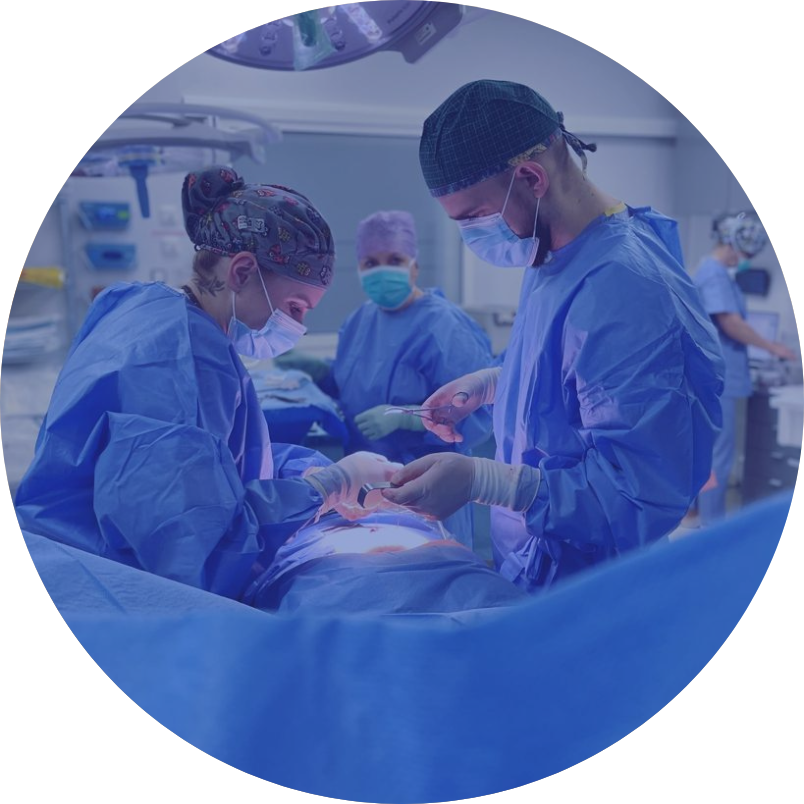Ventral hernia surgery



OPERATIONS
Ventral hernia is a condition involving the displacement of organs or parts of organs outside the abdominal cavity. Over time, the hernia can become larger, and the symptoms exacerbate. The risk of incarcerated hernia arises, which is very dangerous.
How does ventral hernia develop? The condition is caused by muscle weakness in the anterior abdominal wall, uneven muscle tone or fascial defects. The development of hernia can be influenced by such factors such as heavy physical strain, power sports, sedentary lifestyle, obesity, smoking, conditions that increase pressure in the abdominal cavity (such as constipation, colon disease, cough, prostate hypertrophy).
The primary classification of hernias takes into account the site of their origin. A distinction is made between inguinal hernias, femoral hernias, umbilical hernias, epigastric hernia and postoperative hernias that develop in surgical scars.
The symptoms of inguinal hernia include a soft bulge at the hernia site, which initially can be pushed into the abdominal cavity. There is also pain when the bulge is pressed and during exercise, defecation or coughing. The pain is often accompanied by a characteristic burning and pulling sensation. When this condition is suspected, an ultrasound (USG) is performed first, while another option is a CT scan, MRI, diagnostic laparoscopy or X-ray in case of bowel obstruction.
Hernia is an abnormal condition and requires surgical treatment. The surgery involves moving the organs into their proper place and repairing defects in the abdominal wall. It is performed using traditional, laparoscopic or endoscopic preperitoneal methods. A classic procedure involves making an incision to reach the abdominal cavity, repairing the hernia and then suturing the area where the organs have escaped. A hernia mesh is usually used to reduce the risk of recurrence.
Preoperative instructions:
Prior to hernia repair surgery, it is important to assess the patient’s overall health by means of laboratory tests, including full blood count, coagulation pathways, electrolyte balance, glucose levels and urinalysis. During the diagnosis, it is crucial to inform the doctor about the medications and supplements the patient is taking. Immediately before the surgery, wash thoroughly and come for the procedure on an empty stomach.
Postoperative instructions:
Patients who have undergone hernia surgery can usually go home as early as several hours after the procedure. Painkillers should be taken for 2-3 days. Intense physical strain is not advisable, but it is advisable to start taking leisurely walks as soon as possible, which prevents adhesions and scar contracture. A light diet is also recommended. Full recovery time – 3 months.

